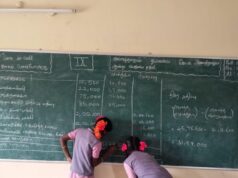Policy stability is more than just drafting ‘beautiful’ policies; if there are hurdles to implement them, it is not easy to do business. These are the words of the President of the Asian Infrastructure Investment Bank (AIIB), Jin Liquin, as he played referee at the battle of the two Piyush’s recently at the AIIB AGM in Mumbai. They were on a panel to discuss mobilising finance for infrastructure in Asia. Most panels are boring because everyone is polite and agrees with the other panellists. This one was different because two panellists had very different views — Piyush Goyal, India’s Finance Minister, and Piyush Gupta, CEO of DBS Bank Singapore. The fact that we could have such a frank exchange of views is a tribute to the open society that we have in India. So, here are the highlights of the Piyush vs Piyush debate.
Piyush Goyal kicked off with a very lucid summary of the regulatory environment in India. He talked about how infrastructure improvements have transformed lives in India. And how the integrity of processes and individuals are attracting funding to infrastructure. He quoted examples — licenses cannot be subsequently cancelled and he talked about the change in mindset with more focus on monitoring and accountability. If projects are designed properly there will be enough finance. India has rule of law and frameworks like the media and public response. India has never had a default in international infrastructure financing. Politics will continue to play a role in any democracy, and that should be factored in when looking at the large opportunity in the country. He also talked about how land acquisition challenges are being reduced by involving communities in the upside of infra projects.
Piyush Gupta, the CEO of DBS Bank of Singapore, countered by saying that money is not that easy to come by for projects in India. There is an urgent need for long term debt markets. Pre-operation risks like land acquisition have deterred investors and regime changes across the region have led to policy uncertainty (as is being currently seen in Malaysia). Banks need more capital for longer tenor loans and higher perceived political risks. He concluded that in India there is indeed no sovereign risk, but there is significant project risk. If the government anchored key infra projects, the risk could be significantly reduced.
Jin Liquin moved in to say that money is like water — it follows the path of least resistance. Therefore, governments should not just focus on policies. They should also help reduce the practical difficulties faced by infra developers and financiers in their daily work.
And therein lies a lesson for policy makers — drafting good policies is not enough. Day-to-day hassles faced by infra developers have also to be also addressed to see significant increase in private sector participation in infrastructure. The key central ministries in India — power, roads and railways — have seen huge investment interest thanks to the policies of the central government. But operational challenges at the State level and challenges with the implementation of these policies can negate the benefits of ‘beautiful’ policies.
Post Disclaimer
The opinions expressed in this essay are those of the authors. They do not purport to reflect the opinions or views of CCS.






